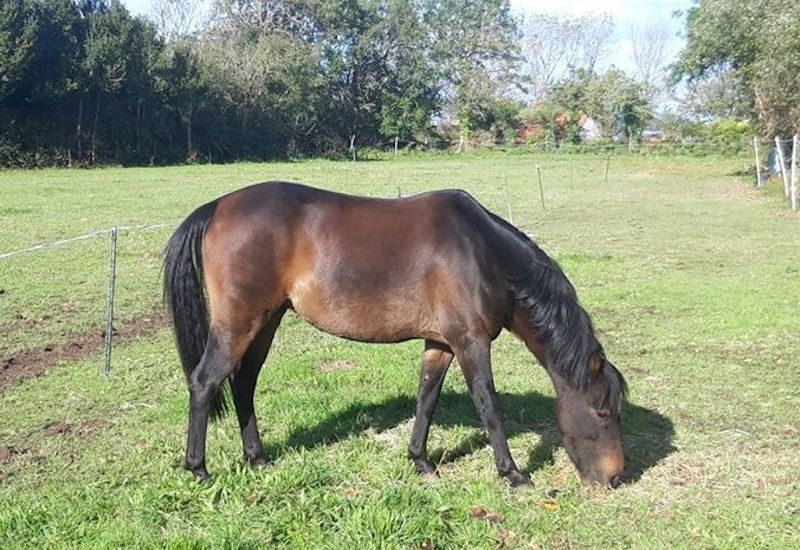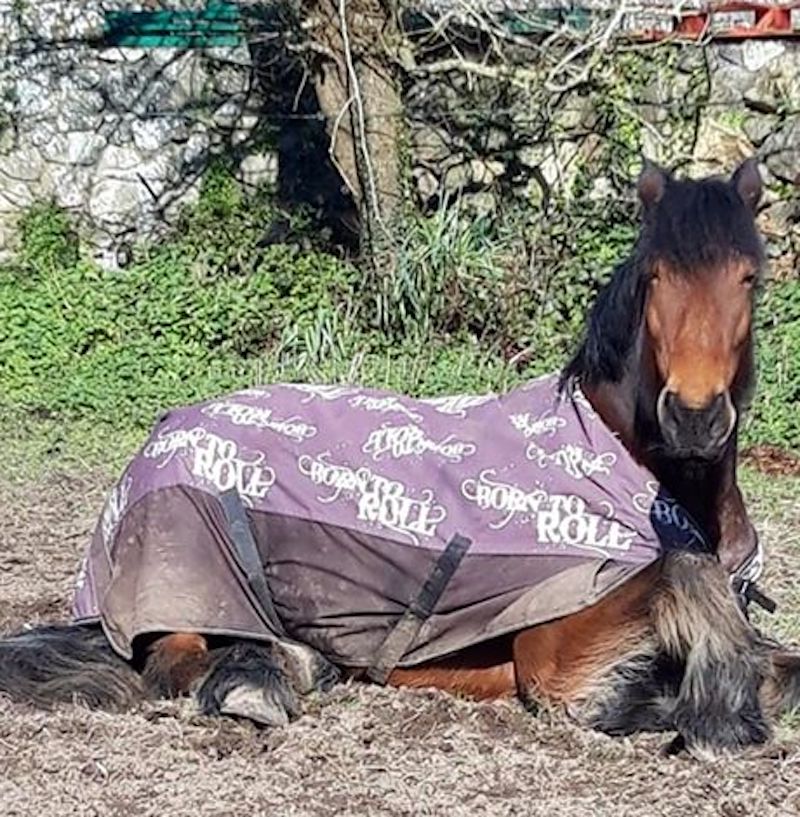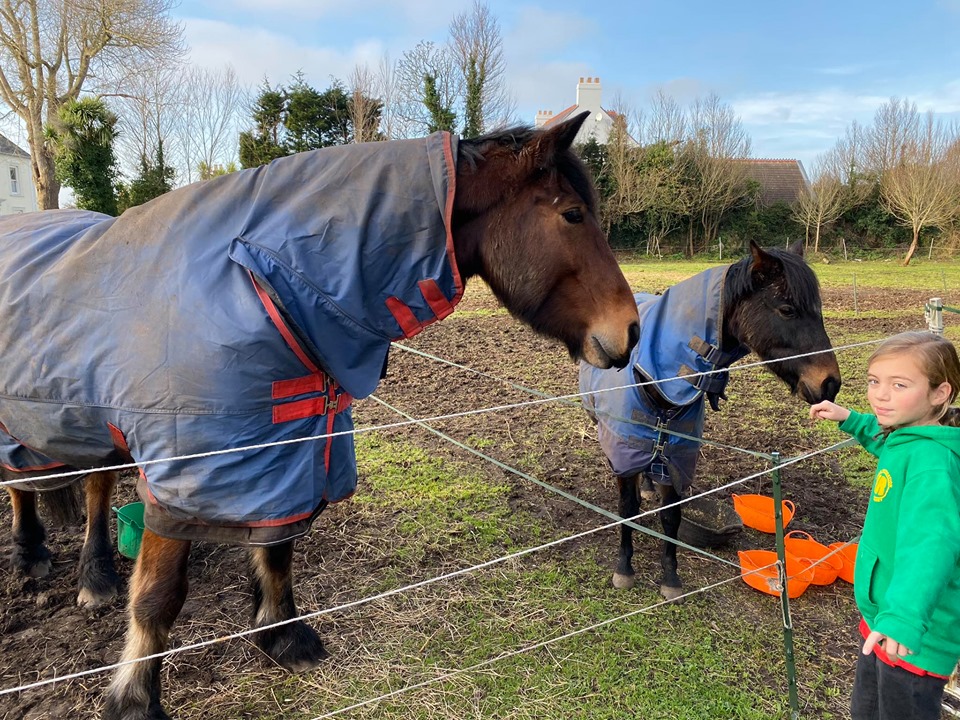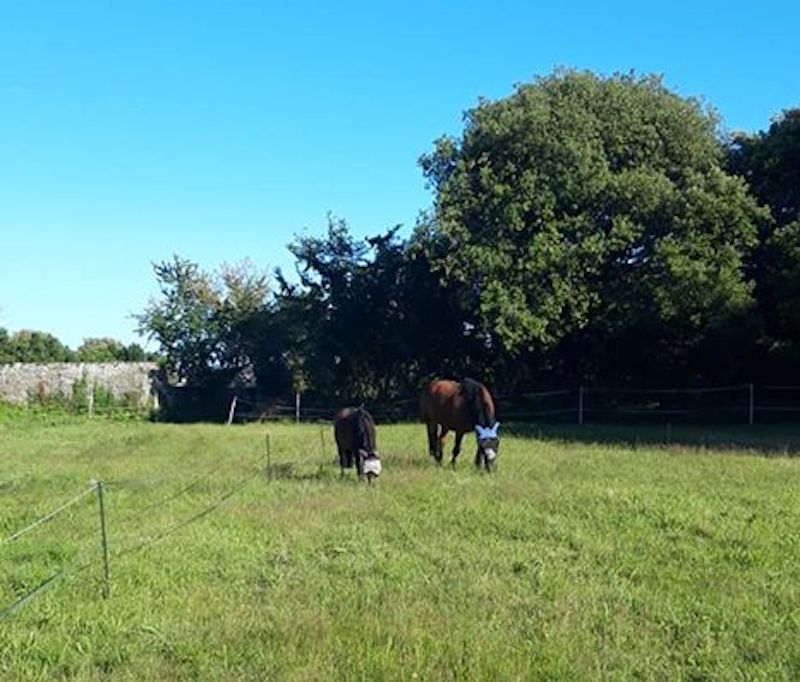

Some of Guernsey's horse owners are asking the public not to feed their animals after an increase in carrots and apples being left in fields, or fed directly to horses and ponies during the covid-19 lockdown.
Local horse woman and former riding instructor, Alex Tielles, said: “I have had several people contact me with real concerns about the amount of people feeding their animals."
She said it can be very dangerous with a number of different consequences for the animal.
Mrs Tielles appreciates people enjoy looking at the animals, but feeding them must be left to their owners.

Pictured: Alex Tielles' horse Duke relaxing in his field.
"I know they are lovely to look at and to come and see, but please, please do not feed any horses you may come across.
"This time of year is very dangerous for horses, as the spring grass combined with any extra food can cause a really nasty condition called laminitis. If owners are unaware that their horses and ponies are being given more feed than usual, it can cause them to become very ill – it can even be fatal. You may see horses and ponies in patches without much grass at this time of year and this is for their own good. Most of them are a bit piggy and will eat until they are very unwell.”
Mrs Tielles said it is also worth being aware that feeding horses can cause them to fight each other, bite you or even cause potentially deadly illnesses.

Pictured: Younger horse riders are trained in caring for the animals too.
“Horses do like their food and in their impatience to get it, sometimes they can give you a nasty nip or flatten their companion if they think he’s getting something and they’re missing out. Lumps of food such a carrots or apples can easily become lodged in horses’ throats, and as horses can’t be sick this can kill them.
"Horses, like people, can also have allergies to certain foods and what may seem like a treat can make them extremely unwell. If they eat anything they shouldn’t it can stop their stomachs working and cause a condition called colic, which can even kill them.”
There are a number of areas across Guernsey where horses, and other animals, are visible to the public from their private fields.
Although the animals' owners do not mind people visiting their animals any passers by are urged not to leave any gifts for them - as even grass cuttings can be dangerous.
Mrs Tielles said that can be a choking hazard.
“I’ve also heard of some local people who have had grass cuttings put in their horses’ or ponies’ field by well-meaning members of the public. Grass cuttings are particularly deadly to horses, as they can easily choke on them.
"The cuttings can also either block the horses gut and cause them to get a severe tummy ache, or they can ferment in their stomachs which causes the horses’s intestines to fill with gas. This is a potentially fatal condition.”
“We all know people mean well and simply want to make a fuss of our animals, but it is worth remembering that you would be very upset if someone came to your house to feed big bags of sweets to your children or chocolate to your dogs. Feeding horses is no different - our pets are very much loved and most owners know what is good for them.”

Pictured: Alex Tielles has found food thrown into her field where Duke and Christopher are kept.
In the UK, the RSPCA and SSPCA have advised the public not to feed any horses or farm animals as there is also a risk of transferring the Covid-19 virus. The virus can survive for several hours on animals’ fur, so feeding a horse or pony could leave the owner or the person feeding the horse with the disease.
“If you do genuinely have concerns that a horse is not being fed enough, I’m sure the best thing to do would be to speak to the owner in the first instance, as they are likely to explain to you why a horse is on a restricted diet. As a general rule if a horse is left without water or is very thin then there may be an issue, but if they have water and appropriate shelter and are not skinny then they should be fine. If you are still concerned then contact the GSPCA or the States Vet, but thankfully cases of neglect are extremely rare in Guernsey”
Pictured top: Alex Tielles owns and cares for horses and said no one should feed them but their owner.
Comments
Comments on this story express the views of the commentator only, not Bailiwick Publishing. We are unable to guarantee the accuracy of any of those comments.